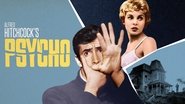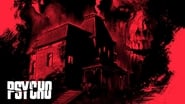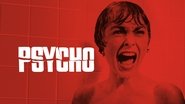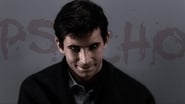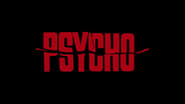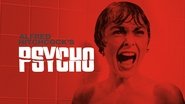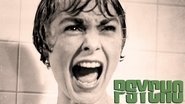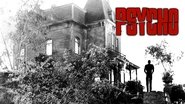ferbs54
It is not every filmmaker who can manage the difficult trick of coming up with four consecutive masterpieces, but that is just what British director Alfred Hitchcock was able to do as the late 1950s segued into the '60s. His 1958 offering, "Vertigo," took time to find its audience but today is recognized by the British Film Institute's "Sight and Sound" magazine as the single greatest motion picture ever made; 1959's "North by Northwest" is surely one of the all-time great entertainments; 1960's "Psycho" practically jump-started the modern-day horror industry all on its own, and remains the director's most well-known film; and 1963's "The Birds" is still a baby-boomer favorite to this day. But of those four films, all of which reside on my personal Top 100 Favorite Films list, it is the third, "Psycho," that remains my favorite after all these years, and indeed, I personally feel it is the greatest bit of work that the so-called "Master of Suspense" ever gave to an unprepared world. The film was a far cry from its predecessor, "North by Northwest," a big-budget movie that had been shot in lavish wide-screen VistaVision and Technicolor and featured a sweeping, transcontinental story, replete with action and comedy and Cary Grant at his suavest. By contrast, "Psycho" was filmed on the cheap, utilizing Hitchcock's crew from his television program "Alfred Hitchcock Presents"; the entire production was completed in just a few months at a cost of a mere $800,000 or so. But such was the power of the film, and its clever advertising and promotional gimmickry that insisted that no audience member would be allowed admission after the picture had started, that the box office for "Psycho" was enormous: around $50 million, a smashing amount of money for the time. And did it ever deserve it!I generally try to not include spoilers in these little minireviews of mine, but in the case of "Psycho," I will go on the assumption that everyone knows the big reveal that comes at the picture's end, while at the same time endeavoring to be a bit coy, for the sake of those poor unfortunates who have NOT seen this masterpiece. As most of the world seems to know by now, or should, the film shows up what happens when a pretty secretary, Marion Crane (Janet Leigh, in perhaps her finest hour), who works in a Phoenix real estate office, absconds with $40,000 of the company's money and hightails it by car to meet her lover, Sam Loomis (future U.S. ambassador to Mexico John Gavin) in California. Forced to take refuge during a sudden downpour, she stops for the night at the lonely Bates Motel, meets its gawky and awkward proprietor, Norman Bates (Tony Perkins, in the role that made him a star), and is later knifed to death--apparently by Norman's mother--while taking a shower in her room. (This, by the way, was not the first film to depict a woman being attacked while in the shower; indeed, just two years earlier, in the film noir "Screaming Mimi," Anita Ekberg had been attacked in a similar manner, but the difference was, hers was an outdoor shower, with somewhere to escape to, and she was NOT killed during the attack.) Worried by her sister's disappearance, Lila Crane (Vera Miles) arranges to go with Sam to investigate. The two hire a private detective, Milton Arbogast (the great character actor Martin Balsam), to help in their investigations, and the trio eventually tracks Marion's disappearance to the motel, where they discover the grisly secrets that it hides.A bit of personal history here...and I may be revealing my age a bit by doing so. I am old enough to remember when "Psycho" was first released, in June of 1960, although I was just a wee lad at the time. I remember seeing the trailer for the film in a theater, although I did not realize until many years later, when I saw the trailer again as an adult, what it had been. And I remember the effect that this film had on many of the grown-ups in my neighborhood, particularly on one woman, Tika, who would not take a shower again for many months after she first saw it. The picture, of course, was a genuine shocker for film audiences of the era. Never before had a movie star of the magnitude of Janet Leigh been so suddenly killed off...and just 40 minutes into the picture! Today, naturally, anything goes, and any star can be unceremoniously knocked off in any manner. We've pretty much seen it all at this point, what with the advent of slasher flicks and torture porn films, but back in 1960, this kind of thing was brand new. People today just cannot imagine how shocked and stunned the 1960 audiences were at the time; what a sensation this film was. The word of mouth was terrific, leading to the box office figures mentioned above. As a youngster, I took all this in but of course was not allowed to see the film by my parents. It wasn't until I was in my very early teens that "Psycho" was first shown on television, and by then, I was more than primed. Thus, having been dared by some friends that I would not have the courage to ever see this film alone, I sat down to do so one night. My parents and sister, for some reason, were not in the house, and I manfully plunked myself down on the floor and watched this celebrated horror legend on my ownsome. After all, I figured, I'd already seen 1959's "House on Haunted Hill" any number of times (a good preparation, as it turned out!), and how much scarier than THAT could this picture be? Well, the shower scene of course frightened me, as did the shocking murder of Arbogast on the stairs (one of Hitchcock's greatest set pieces), but it was the final revelation of Mrs. Bates in that damp and musty fruit cellar that really got under my skin. Still, I made it to the end, and breathed a huge sigh of relief; I had made it all the way through, and had something to discuss with my friends. In the intervening 50 years or so, I have watched "Psycho" God knows how many more times on both the big screen and small, and it never seems to get old for me. (That, by the way, is the hallmark of all of my Top 100 films; the fact that I can watch them over and over and over with undiminished enjoyment.)Today, "Psycho" manages to hold up very well indeed, despite the fact that we are all aware of the film's secrets and know just when the jump scares are about to pop out. At this point, there is very little to say about the film that has not been said before. It has probably been discussed and analyzed more than any other Hitchcock film, and the books and articles written about it are legion. As a matter of fact, just last year, a new documentary, "78/52" (respective references to the number of setups and editing cuts), was released that centered on just the shower scene alone! I could certainly not improve on any of those commentaries, but would especially recommend to those who are interested Danny Peary's very informative article on the film, to be found in his indispensable reference book "Cult Movies 3." (It was Peary who first made me realize that the film gives us a woman named Crane who becomes the victim of a man who likes to stuff birds, and how the director makes his audience feel guilty by making us all feel like voyeurs throughout the picture.) The film contains so much to love that it is difficult to know where to begin. But let's start with the wonderful script that Joseph Stefano--who would go on to even greater fame a few years later as producer/writer for the classic TV show "The Outer Limits"--was able to come up with, based on Robert Bloch's 1959 novel. (Interestingly, the Norman Bates character in the novel is something of a big fat slob, on the order of a Victor Buono type; thus, Perkins was a very unlikely choice to play this particular role.) It is a wonderful script, witty and penetrating, that intersperses its shocks at just the right moments, and is perhaps never better than in the telling scene in which Norman and Marion converse in the parlor before she takes her good-night shower. The actors in the film are all marvelous, down to the smallest bit parts, and Hitchcock's manipulation of his audience, and the way he moves and places his camera (as in the spiraling descent into Marion's dead eyeball after the murder, and the overhead shot of Mrs. Bates attacking Arbogast), are by now legendary. Perhaps best of all, though, is Perkins. What a wonderful job he does here! Notice his hips sway as he ascends the stairs in the creepy Victorian mansion that is the Bates home, or the look of fear and then relief on his face as he attempts to sink that corpse-containing car in the nearby swamp. Amazingly, the audience sympathizes with him as he covers up for his homicidal mother, and that is no small feat. And, oh, let's not forget one of the most key elements in the entire film, that sensationally frightening score by the great Bernard Herrmann, composed solely of strings (violins and cellos); surely, one of the most instantly recognizable film scores ever created, and so very influential on future composers for horror pictures. "Psycho" was a groundbreaker and a trendsetter in many departments, but here's something that you may not have heard before: It was also the first film that ever showed the inside of a toilet bowl, a fact that caused all manner of uproar among the decency and censorship groups. (Isn't it funny what some people will choose to get upset about?) I could go on forever about this film, but I will leave you with this one fun fact: The shower curtain that I have right now in my bathroom at home is a clear one, and come to think of it, I have been purchasing see-through shower curtains for many decades now. Is this a subconscious effect brought on by this truly remarkable film? Could very well be! After all, if the Bates Motel had featured clear shower curtains in its rooms, Marion Crane might still be alive and well today....
















